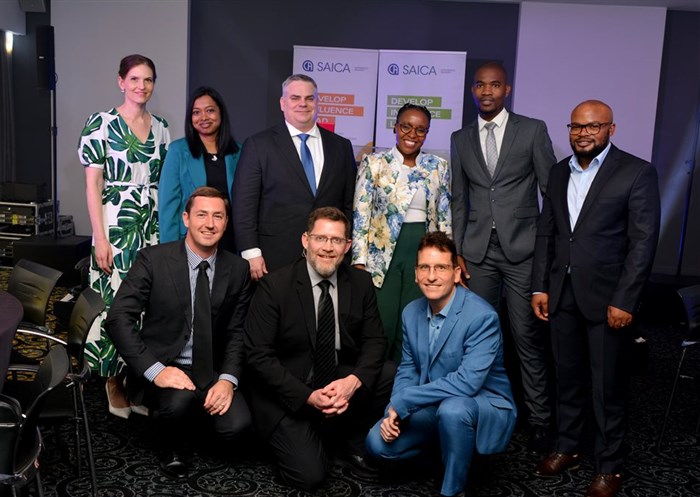The South African Institute of Chartered Accountants (Saica), in collaboration with the Accounting Standards Board (ASB), hosted the IPSASB 2024-2028 Strategy and Work Program Consultation Roundtable (the Roundtable) to give South Africa constituents an opportunity to comment on the proposed strategy and work program. The Roundtable was attended by the Staff and Board Member of the International Public Sector Accounting Standards Board (IPSASB).
The Roundtable was held on Monday, 29 January 2024 at the Protea Hotel Fire & Ice in Melrose Arch. The day’s agenda focused on three key themes: the proposed IPSASB’s strategic objective and key areas of focus, research and maintenance activities, and advancing sustainability reporting in the public sector.
During her welcome address, Saica CEO, Patricia Stock, emphasised Saica’s support for the shift in the strategy to focus on maintenance activities and the improvements to International Public Sector Accounting Standards (IPSAS) as well as the development of the International Public Sector Sustainability Reporting Standards.
“This shift aligns with global efforts to address sustainability challenges and we commend the IPSASB for embracing this critical aspect. For the successful transition for [sic] any strategy and related work, it is very important that we reflect on the realistic aspirations with due consideration of the status of various countries especially since we are faced with the reality of the need to make substantial progress concerning the adoption of accrual accounting in other jurisdictions,” said Stock.
The proposed strategic objective aims to strengthen Public Financial Management (PFM) and sustainable development globally through increasing adoption and implementation of accrual IPSAS and International Public Sector Sustainability Reporting Standards. The IPSASB proposes to deliver this strategic objective through two activities: delivering global standards and inspiring implementation.
Jeanine Poggiolini, Chief Executive Officer at ASB, acknowledged sustainability reporting for being a key part of the IPSASB strategy. She highlighted some of the challenges in adopting sustainability reporting in the South African context.
“Sustainability reporting remains a bit of a question mark in the public sector at the moment for us and it is not to say that we do not have sustainability reporting in the public sector. We derive our mandate from the legislation and the legislation doesn’t say much about sustainability reporting. We are hoping to make some changes to the Public Finance Management Act (PFMA). So potentially, sustainability reporting in the public sector could come to us [as the ASB],” said Poggiolini.
As the only continent to receive three roundtables during this consultation period, Andrew van der Burgh, board member: IPSASB (South African Representative) said Africa has an important voice in the IPSASB. He also spoke of the progress made on financial reporting.
“All other continents have received one roundtable and we have received three. This just shows the importance of our voice. Up until now, the board has been very active in completing our financial reporting and trying to catch up with that of the private sector. That work has largely been completed. There are still a couple of sub-standards that we are working on,” said van der Burgh.
Ross Smith, programme and technical director: IPSASB, described their role as being the only global standard setter for the public sector but does not enforce the application of the standards by jurisdictions.
Regarding sustainability reporting, Smith said the lack of framework in the public sector is causing a problem in many jurisdictions.
“There is a broad range of things in the sustainability space relating to environmental, social, and governance that we could address. One of the key things the Board said in a consultation paper in 2022 was that we would always have a link to the Sustainable Development Goals (SDGs). These goals are linked to a range of public sector issues. The feedback was that we should consider the SDGs' time limit. They are supposed to be achieved by 2030,” added Smith.
Speaking on Research and Maintenance, Christoph Braxton, board member: ASB and principal: IPSASB, said there are positives in the adoption of accrual IPSAS.
“The first activity that matters to us is to address constituents' needs. In terms of our international public sector accountability index, we have seen IPSAS or influence grow. In 2020, we were on 30% accrual. In terms of the expectations from governments, we are trying to achieve 73% of our jurisdictions being on accrual. Those are all positive for accountability,” said Braxton.
The consultation period for submission of comments on the strategy is open until 15 February 2024. Thereafter, from March 2023, the IPSASB will look at the deliberations made during the consultation period and the finalisation of the strategy is expected to be complete by September 2024. Saica will be submitting a comment letter.
Milton Segal, Saica executive director: standards, gave the closing remarks. He thanked the members and everyone for availing themselves. He said the role of IPSASB is crucial in achieving better reporting in the accountancy profession.
You can watch the Roundtable here.































